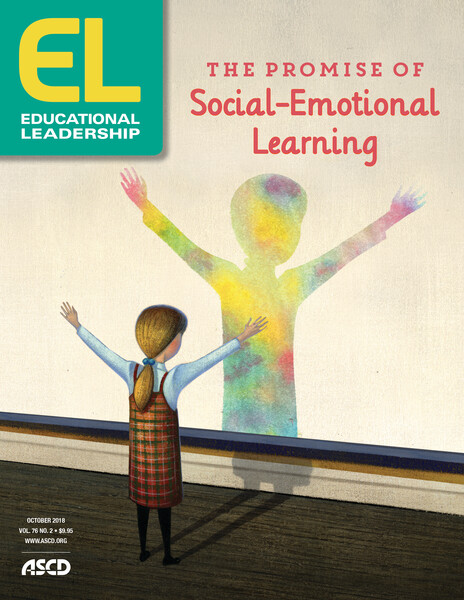Pedro Noguera, the author of numerous influential books and articles on race and inequity in education, is a distinguished professor of education at the Graduate School of Education and Information Studies at UCLA and the director of the Center for the Transformation of Schools. He is currently the commissioner of the Aspen Institute National Commission on Social, Emotional, and Academic Development, a group of leaders in education working to "re-envision what constitutes success in schools."
You're widely known for your work on equity, race, and poverty issues in education. How do you see social-emotional learning (SEL) fitting into those areas?
Whenever we broaden the lens through which we view children to go beyond strict academics, to look at their social-emotional needs or physical needs, we're forced to grapple with issues of equity. That is, we know that some kids come to school with greater needs (as a result of trauma or anxiety, for example) and that addressing and responding to those needs is a key part of ensuring that they have an opportunity to learn. When you consider the importance of social-emotional learning, you shift the focus away from simply holding kids and teachers accountable for narrow achievement gains, and you start asking questions like "What do we need to do to support this child so that he can learn?" "What do we need to do to support this school so that it has the ability to serve the needs of its students?" That kind of shift in focus is very helpful in addressing long-standing equity concerns in education. So you could say that SEL was a focus of mine and other equity advocates before it was recognized as a new issue.
What do you say to skeptics who say that SEL—or components of it like grit or resilience—is being put forth as a panacea for high-needs schools, even as structural issues around poverty and school inequity persist and aren't being adequately addressed?
I think the skepticism is warranted to some extent. Anything like this can easily be misinterpreted and distorted. And I've seen this at times in some schools. It's a mistake to assume that kids just need grit and everything will be fine. Do kids need to work hard? Absolutely. Do they have to have the ability to persist when things get hard? Absolutely. But there are some kids who are faced with bigger obstacles, particularly related to poverty, that make it necessary to have additional support and resources. We have to make sure that when we talk about the importance of SEL that we always contextualize how we approach teaching these skills and understand the impact of other systemic or community factors. But at the same time, we have to recognize that acquiring SEL skills—knowing how to work with people, how to seek help, how to deal with frustrations—is important for all kids.
What would say are the hallmarks of a strong SEL program or climate? When you go into a school, what are the things you look for?
I always look for what a school is doing to explicitly teach prosocial values. Many schools focus primarily on rules and what kids can't do. They don't explicitly teach things like honesty, kindness, empathy, respect. Without those things, schools don't work very well. Similarly, I look for how such values and norms are reinforced in classrooms. Again, it's not good enough just to have rules—you have to have norms on how we'll cooperate, how we'll listen to each other, how we're going to respond to mistakes. I've also seen in my own work in juvenile-correction centers that well-designed project-based learning can reinforce SEL. Project-based learning requires kids to work together, to work with teachers and seek help, to solve problems and persist through challenges. These are key SEL components, and they are integral to learning and becoming an adult.
Aspen Commission's culminating report on SEL is coming out later this year. What kind of impact do you hope it will have?
We all remember how the No Child Left Behind Act changed a lot of things in education—but NCLB used a carrot-and-stick approach. We don't have that with our work. Mainly what we're hoping to do is raise awareness of the importance of SEL among educators and parents and change the conversation so that people recognize this as an integral part of learning, not just an add-on. We're also hoping that some states and districts we'll understand this and incorporate SEL into their standards and accountability frameworks in smart ways.
Are you optimistic about that?
I think some places will be ready for it and others will be dismissive. That's my honest expectation. But if we can get a mix of red and blue states and a mix of big and small and urban and rural districts on board, it will make a huge difference in education going forward.
Editor's note: This interview has been edited for space and clarity.





